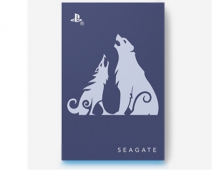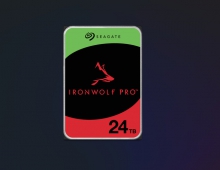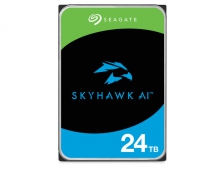
Seagate And IBM Use Blockchain Technology to Reduce Global Hard Drive Counterfeiting
Seagate Technology plc is working with IBM to reduce product counterfeiting using blockchain and security technologies.
The project, which is designed to help manufacturers, integrators, and business partners fight counterfeit hard drives, uses the IBM Blockchain Platform to authenticate the provenance of disk drive products.
To verify product authenticity, Seagate will update the IBM Blockchain Platform on the IBM Cloud with product authentication data based on the Seagate Secure Electronic ID (eID) at the point of manufacture. Each unique identifier (serving as an electronic fingerprint) can be used to verify the identity of a hard drive at any time during its product life cycle. Seagate’s Certified Erase employs cryptographic erasure technology to produce a digital certificate of data purge, which is electronically signed by the device under the Seagate Secure public key infrastructure (PKI) and stored on the blockchain for compliance management with emerging global data privacy laws.
Building upon IBM’s blockchain expertise and powered by the Linux Foundation’s Hyperledger Fabric distributed ledger framework, the IBM Blockchain Platform is designed to allow network participants to append and view blockchain data based on their level of permissioning. Throughout a product’s life, technology vendors, service providers, and end users will be able to confirm the product’s provenance on the blockchain, which provides an immutable record of events.
"The ability to work with Seagate to combine blockchain with advanced cryptographic product identification technology is what sets this work apart, and signals blockchain’s potential to reimagine the electronics product life cycle management processes," said Bruce Anderson, global managing director, electronics industry, IBM.
The eID and Certified Erase capabilities are built on the Seagate Secure technology. Seagate's customers can benefit from knowing that a drive is a genuine Seagate product and that any data on it can be securely erased.
Many companies are interested in blockchain for creating more efficient workflows.
In January, Maersk and IBM announced a joint venture to deploy a blockchain-based electronic shipping system that will digitize supply chains and track international cargo in real time.
The new platform could save the global shipping industry billions of dollars a year by replacing the current electronic data interchange (EDI) and paper-based systems, which can leave containers in receiving yards for weeks. De Beers and other jewelry industry giants also created private blockchains to verify the origins of gems.
Walmart also developed a supply chain tracker, based on IBM's blockchain cloud service, that tracks produce from farm to shelf.
SAP is working with pharmaceutical, tech and shipping companies on an automated blockchain-based supply chain tracking system that it believes will bolster visibility and ensure the authenticity of goods such as food and drugs.





















